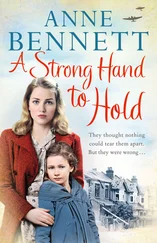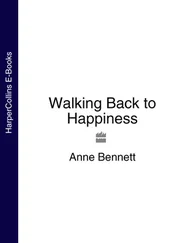The priest, however, remembered Carmel’s injuries and said maybe it might be better if she was away from the home for a little while, until things settled down.
Carmel stayed the night in the priest’s house and the next day, Father O’Malley went to see Sister Frances and she told him about Carmel’s love of nursing and the exam she had taken to enable her to attend the nurses’ training school in Birmingham, under the jurisdiction of her friend Catherine Turner, who was the Matron there. Together they went to see Carmel.
Sister Frances noted the girl’s split lip, grazed, bruised cheeks and black eyes, and when she saw the careful way she sat and held herself, she knew it wasn’t just her face her manic father had laid into and made such a mess of. Her eyes filled with tears and she was ashamed that she had let Carmel cope with breaking her news on her own. She knew the manner of man that Dennis was—why hadn’t she gone with the girl to explain and taken her out of the house that same night?
She turned to the priest and said, ‘Surely, Father, you can see Carmel cannot go back home after such a beating? And what is wrong with training to be a nurse? It is a very noble profession and Carmel is a natural. She has worked extremely hard, passed the stiff examination and, of course, has much practical experience to draw on too.’
‘This is all very well,’ the priest said, ‘but you say she wants to train in Birmingham, England, when we have perfectly good hospitals in Derry. I would understand any parent’s concern at the thought of their young daughter going so far on her own.’
‘My father has never had one minute’s concern about me,’ Carmel cried. ‘All he cares about is himself and always has done. I wouldn’t be far enough away from him in Derry.’
‘I’ve been to see the father, given him a stern talking-to,’ the priest said stiffly. ‘He says he knows he went too far and it will not happen again.’
Carmel gave a humourless laugh. ‘And you believe him?’ she asked, adding, ‘Of course you do. But, you see, I don’t, Father. This isn’t the first time that I have been beaten, but it is going to be the last, the very last, and if you won’t help me, or let Sister Frances help me, then I will do it on my own.’
The priest was clearly uncomfortable. He knew he should point out her duty to her parents, but it was hard to do so and look upon the handiwork of one of those parents.
‘And Carmel won’t be totally on her own in Birmingham anyway, Father,’ Frances said. ‘Four of our nursing sisters are leaving in September to take up posts in our own hospital of St Chad’s in the very same city and they could all travel together. They all know Carmel well and have worked with her on the wards at Letterkenny. They would be there if she should have need of them at all.’
Her eyes slid across to Carmel’s as she spoke but this time Carmel pulled no face. She was no fool and knew that this information would act in her favour, especially when Sister Frances went on to say, ‘And I have already explained that the matron who the young nurses are accountable to is an old friend of mine. I’m sure that she would keep a weather eye on young Carmel too. I don’t think anyone needs to worry on that score.’
‘Do you really want to do this nursing?’ Father O’Malley asked Carmel.
‘More than anything in the world,’ she said.
The priest saw the light shining behind Carmel’s eyes at the thought of it, but he also saw the determination there and he knew if she was thwarted in this, then she might just do what she threatened and take off on her own. If something should happen to her then, he would never forgive himself. He had known Carmel since the day she was born and the teachers had never said she was bold or naughty, just very bright and tenacious. He knew that in this instance he had to give Carmel her head, and with his blessing.
Carmel continued to stay at the priest’s house. The housekeeper was kindness itself to her, seemed determined to fatten her up and nursed her battered body tenderly.
A week later, when Carmel’s face was almost back to normal, she went with Sister Frances to the medical supplies shop in Derry armed with the hospital list. They had to buy six white linen belts, two plain print dresses, fourteen aprons, eight pair of cuffs, six collars, one pair of silver-plated surgical scissors, two named clothes bags and four pairs of black woollen stockings. Carmel also needed to take two dusters, one pincushion, one pin tray and one physiology book by Furneaux. She would never have been able to buy all she needed if it hadn’t been for the generosity of the hospital staff who had had a whipround for her. There was even enough left to buy the regulation lace-up Benduble shoes, which were fifteen shillings and nine pence a pair, but which Sister Frances said would see her right through her training.
That night Carmel packed all her purchases in the case Father O’Malley had lent her and knew that the die was now cast. Here she was on her way. It was September 1931 and Carmel Duffy, at eighteen years old, was off to live her life the way she wanted to. All she had to do was look out for New Street Station and let her new life begin.
At New Street Station Carmel said goodbye to the nuns. She was sad to leave them, for they had been kindness itself to her, but they had their own transport arranged to St Chad’s on Hagley Road, which they said wasn’t far from the General Hospital.
‘Now you will be all right?’ the oldest of the nuns asked.
Suddenly Carmel felt far from all right, but she told herself sharply that it was no time for second thoughts, so she answered firmly, ‘I will be fine. I am to be met, the letter said so.’
‘If you are sure…?’
‘Yes, I am, honestly. You just go. You are keeping the taxi waiting.’
She watched them walk away and looked around the noisy station, trying to drink it all in. All around her trains were clattering, their brakes squealing and steam hissing. The platform was thronged with people, some talking and laughing together, others rushing past her with strained faces. Porters, their trolleys piled high with suitcases, warned people to ‘Mind your backs, please,’ and a little man selling newspapers from a cupboard of a place advertised them constantly in a thin, nasal voice that Carmel couldn’t understand a word of. Above this cacophony a loud but indistinct voice seemed to be advising people what platform to go to and what train to catch, though the words were as incomprehensible as the news vendor’s to Carmel.
Carmel no longer felt apprehensive, but thrilled to be a part of such vibrancy, so much life. Soon she was approached by two girls about the same age as herself.
‘Are you Carmel Duffy?’ the one with short bobbed black hair and laughing brown eyes asked. ‘Do say you are.’
Carmel gave a brief nod and then, before she had the chance to reply further, the other girl went on, ‘The home sister, Sister Magee, said we could come and meet you because we will be sharing a room. She told us you were coming all the way from Ireland. Gosh, I think that’s jolly brave. I bet you are tired after all that travelling and I bet you see a difference here from where you come from. Course, I am a brummie born and bred, and so—’
‘Do wrap up, Jane, and let the poor girl get her breath,’ said the other girl with a laugh. She looked at Carmel and said, ‘We only met yesterday and I already know that Jane Firkins here can talk the hind leg off a donkey, as my grandfather used to say.’
‘Only making her feel at home,’ Jane protested. ‘Friendly, like.’
‘Yeah, but you’ve got to give her space to speak,’ the other girl said, and extended her hand. ‘I suppose you are Carmel Duffy?’
Читать дальше












